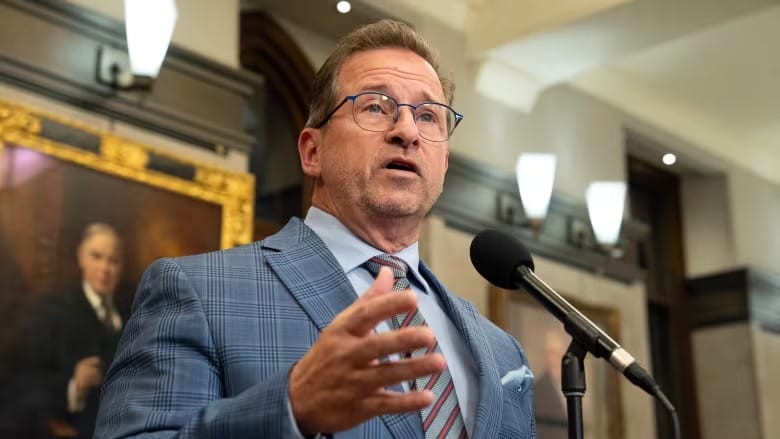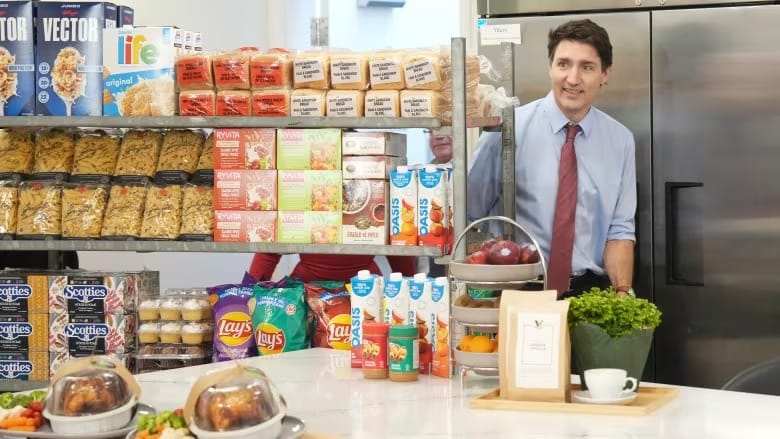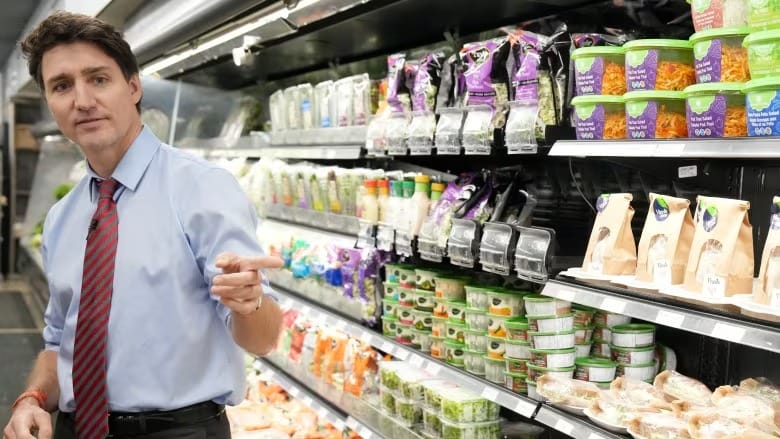Bloc leader to push for early election after government doesn't pass pension hike bill
'We can say the government's days are numbered,' Bloc Québécois Leader Yves-François Blanchet says

Bloc Québécois Leader Yves-François Blanchet announced Tuesday that he would collaborate with other opposition parties to topple the Liberal government, following Ottawa’s failure to meet his demands for a pension hike and increased protections for supply-managed farming sectors.
Blanchet had previously offered conditional support, stating he would back the Liberals on non-confidence votes if the government passed two Bloc-sponsored bills by October 29: one raising Old Age Security (OAS) payments for those aged 65-74, and another shielding dairy, poultry, and eggs from future trade negotiations.
Since the deadline has passed with neither bill enacted, Blanchet said the Bloc would now work to bring down the minority government.
"Depending on what the NDP decides, we can say the government's days are numbered," Blanchet told reporters, referencing the possibility that the NDP could once again align with the Liberals to prevent an election.
"The expiry date of this government has passed. It's up to the people of Quebec and Canada to elect a new Parliament," Blanchet said in French. "The only deal we need now is to send the Liberals packing."
Blanchet confirmed the Bloc would oppose the government in any future non-confidence votes. While he left the door slightly open for future support if the Liberals fulfilled his demands, he stressed that "we are no longer negotiating with the government — we are negotiating with other opposition parties to bring it down."
Government Response
When asked about Blanchet’s intentions, Deputy Prime Minister Chrystia Freeland maintained that communication channels remain open.
"We think it's important to keep the door open and provide an opportunity for discussion," Freeland said.
When asked if the Liberals were prepared for an election, she responded, "Of course."
Public Services Minister Jean-Yves Duclos dismissed the Bloc's October 29 deadline as "artificial" and suggested there was still room for collaboration on senior benefits. However, Duclos expressed skepticism about the Bloc's pension proposal, arguing that it would send higher payments to wealthy seniors, which the government opposes.
Passing both bills within the Bloc’s timeline was unlikely from the start. The supply management bill is currently in committee in the Senate, where the government has limited influence due to Prime Minister Justin Trudeau’s reforms on Senate appointments.
Meanwhile, the House of Commons has been stalled by a filibuster over the government’s refusal to release documents related to a failed green technology program, leaving little time for legislative progress.
The pension bill also faced challenges. The Liberals previously blocked a Bloc motion that attempted to force the government to apply a "royal recommendation," a parliamentary mechanism required for any bill involving new spending. Without cabinet approval, a private member's bill like the Bloc’s pension hike cannot compel government spending.
Generational fairness has also become a point of contention. Federal spending on elderly benefits — already the largest and fastest-growing segment of the budget — is projected to rise from $80 billion in 2024 to $100 billion by 2028-29, excluding the Bloc’s proposed 10% increase.
Blanchet defended the pension hike, insisting older adults deserve better financial support. He also criticized the government’s decision to limit a previous 10% OAS increase to those aged 75 and over, calling it "discriminatory" toward younger seniors.
"Since the government has failed to act, it’s in real danger of falling," Blanchet warned. "I'm ready for an election. In fact, I would happily go to the polls tomorrow."
Liberal Government’s Survival Hinges on NDP Support
With two opposition leaders now actively seeking to bring down the government, an election looms as a real possibility. Conservative Leader Pierre Poilievre has already tried — unsuccessfully — to oust the government through three non-confidence votes this year and has ruled out any support for the Liberals.
However, even with the Bloc now aligned with the Conservatives, an election isn't guaranteed. The Liberal government can still survive if it secures the NDP’s backing.
The Liberals currently hold 153 of the 338 seats in Parliament. To reach a majority of 169 votes without Conservative support, they need either the NDP (25 seats) or the Bloc (33 seats) to join them.
If the Conservatives and Bloc (a combined 152 seats) vote against the government, the Liberals would need the NDP to back them or at least abstain to stay in power.
Should the NDP abstain, the situation becomes precarious for the Liberals. In that scenario, the combined opposition — including the Bloc, Conservatives, and two anti-government Independent MPs, Alain Rayes and Kevin Vuong — could muster 154 votes, potentially defeating the government.
The position of the two Green Party MPs could also play a crucial role if the NDP decides to abstain.
Adding to the uncertainty, at least one Liberal MP, Ken McDonald of Newfoundland, has hinted he might vote against the government in a non-confidence vote if major changes are not made.
With tensions high and the political landscape in flux, the future of the minority Liberal government remains uncertain.





